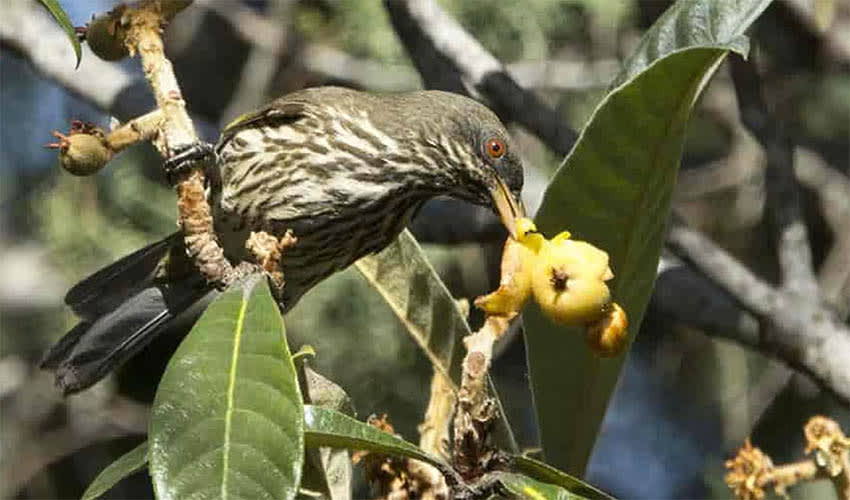A unique and fascinating bird endemic to the island of Hispaniola, which includes the countries of the Dominican Republic and Haiti. It is the only member of the family Dulidae, making it a particularly interesting species for ornithologists and bird enthusiasts. The palmchat, known for its sociable behavior and distinctive appearance, is a captivating species that plays a significant role in its native habitat.
Palmchats are medium-sized birds, measuring about 20 centimeters in length. They have stout bodies with predominantly olive-brown plumage that provides effective camouflage in their natural surroundings. Their underparts are lighter with streaks, and they have a short, slightly curved bill. The eyes are dark, and the legs and feet are a dull yellowish color.
One of the palmchat’s most remarkable characteristics is its highly social nature. These birds are almost always found in groups, both while foraging and roosting. They are known for their loud, chattering calls, which help them communicate with each other and maintain their social bonds. This social behavior extends to their nesting habits as well.
Palmchats build large, communal nests, often in the crowns of palm trees, which is how they got their name. These nests are constructed from twigs and can house several breeding pairs, each with its own chamber within the structure. The nests are used year-round and are continually maintained and expanded by the birds. This communal living is thought to offer protection from predators and environmental challenges.
Distribution
 Dominican Republic
Dominican Republic Haiti
HaitiAnything we've missed?
Help us improve this page by suggesting edits. Glory never dies!
Suggest an editGet to know me
Terrestrial / Aquatic
Altricial / Precocial
Polygamous / Monogamous
Dimorphic / Monomorphic (size)
Active: Diurnal / Nocturnal
Social behavior: Solitary / Pack / Flock
Diet: Carnivore / Frugivore/ Omnivore / Piscivorous / Insectivore
Migratory: Yes / No
Domesticated: Yes / No
Dangerous: Yes / No




